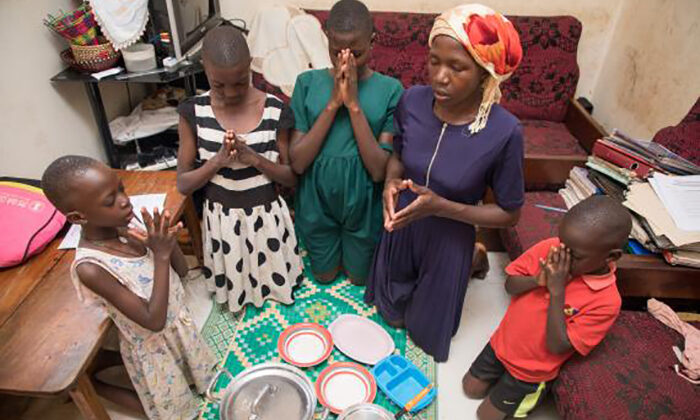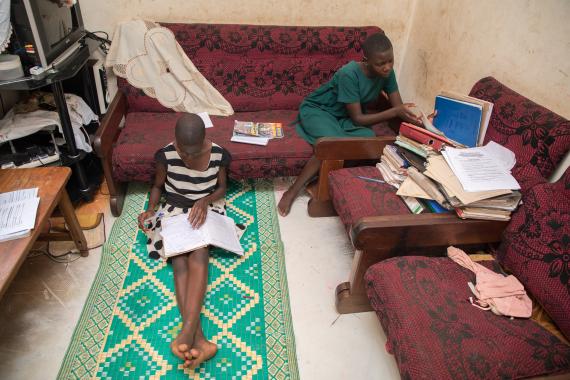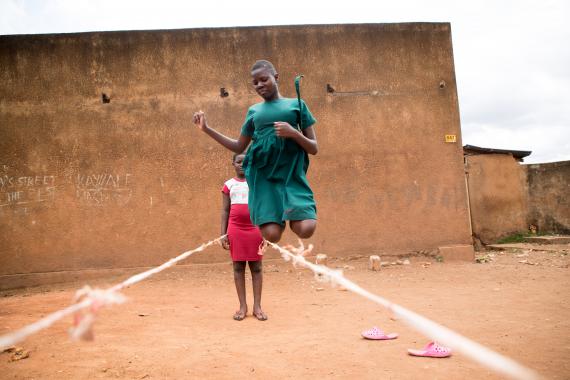
Photo: UNICEF Uganda/2020/Abdul
In Uganda, the COVID-19 pandemic and lock down has left many families with no option but to stay home and keep safe. Schools have been closed, workplaces shut, and many parents and caretakers are home with their families, save for those providing critical services.
Before the lock down, Iculent Veronica a mother of five children aged between 14 and two years, living in the outskirts of the capital city, earned from providing laundry services for several clients. The earnings supported her children’s education and daily meals. Today her jobs have greatly reduced as she can’t walk long distances to reach her clients. Faced with this and several other challenges, Veronica and her family are hopeful that things will normalize soon. In this story, she shares how her family is coping during the lock down.
Time to learn

A typical day at Veronica’s house begins with house chores like cleaning the house, cleaning utensils and fetching water, by all family members. This is followed by breakfast and catching up with homework. “Much as the children are at home, I want them to continue learning,” she shares. The family has a television and Veronica has heard that lessons are being screened. Unfortunately, her children cannot access these lessons. They lack electricity because it is regulated by the landlord and only available from 7 p.m to midnight, when the classes are no longer available. This worries her children who think their classmates elsewhere are learning more than them. This has not derailed the mother of five from encouraging them to learn using the learning materials provided by their schools.
Washing hands to prevent diseases
To protect her family from contracting the coronavirus disease, Veronica conducts regular talks with her children about the disease and its prevention. No wonder a small jerrycan of water mixed with soap is placed at the entrance of her house. Everyone entering the house has to wash their hands with the mixture “Mummy says that if we touch the surfaces in the house with dirty hands, they will get contaminated and this will make us sick,” Sharon narrates. The children have all learnt this and will not enter the house before washing their hands.
Time to play

Work with no play makes jack a dull boy. This too applies to Veronica’s children. She encourages her children to take breaks in between learning and house chores. During the breaks, the girls enjoy playing a game named ‘blada’ where the girls skip a string as Jonathan enjoys playing football.
Time to eat together as a family
When they are all tired and hungry, Veronica serves the family some food, which is preceded by a prayer. It is a simple meal but very nutritious. With limited availability of and access to nutritious food choices in her home, coupled with increased demands for the little available, Veronica at times feels overwhelmed. However, she is aware of the importance of balanced diets and with the little income she earns, tries to provide healthy meals for her family and provides them with plenty of safe drinking water.

